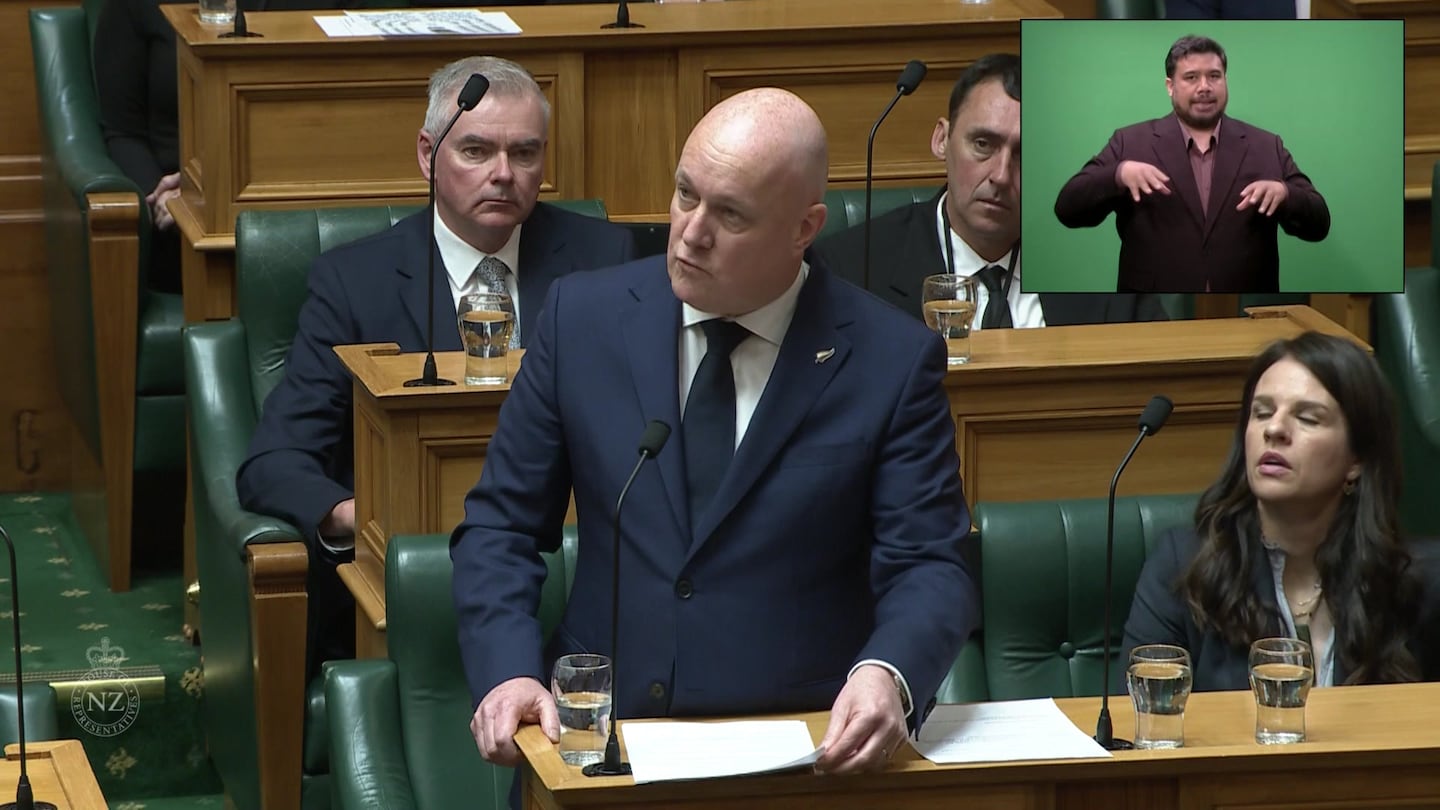Ten.
That is the number of times Prime Minister Christopher Luxon said “sorry” in his speech to the survivors of state and faith-based abuse.
“I am deeply sorry that New Zealand did not do better by you.
“I am sorry you were not believed when you came forward to report your abuse.
“I am sorry that many bystanders – staff, volunteers and carers – turned a blind eye and failed to stop or report abuse.
“I am sorry the state’s oversight of people in care was so poor.
“I am sorry that many abusers were not made to face justice, which meant that other people experienced abuse that could have been prevented.
“I am sorry the state did not act quickly and boldly enough to put much better protection in place for people in all care locations, and that those acting on behalf of the Crown lost sight of you – the people behind the claims.”
He also apologised to Māori, Pasifika, the deaf and blind communities, children and vulnerable adults with intellectual disabilities, those in care targeted because of their sexual orientation or gender identity, and mothers who were pressured into giving up their babies.
All of them suffered harsher treatment than others.
“To all of you, I am sorry."
He continued on to also apologise to the parents who believed their children were better off in care but were instead abused.
“I am sorry that we did not care for your children as if they were our own.”
He also said sorry to the survivors who were tortured at Lake Alice.
“Young, alone – and subjected to unimaginable pain.
“I am deeply sorry.”
Many survivors were denied knowledge of their experiences due to poor or inaccurate record-keeping. Personal information was often withheld, destroyed, lost, or incomplete, with no records of their ethnicity, family, harm suffered, complaints made, medical treatments, or social worker notes. For this, Luxon said, “I am sorry.”
After years of waiting, hundreds of survivors from across the motu gathered in the House of Representatives to hear the formal apology from the Prime Minister, while the other hundreds of thousands watched online or on TV.
One of the survivors in the gallery stood up near the beginning of the speech holding up the event. He called for Jesus Christ to be brought back into Parliament; he was removed from the room.
Continuing, Luxon addressed the survivors. He said his apology represented his government and all the governments before him.
“It was horrific. It was heartbreaking. It was wrong. And it should never have happened.
“For many of you it changed the course of your life, and for that, the government must take responsibility.
“I have said it before, but I thank you again for telling New Zealand with clarity and with honesty what happened to you.”
The Royal Commission of Inquiry into Abuse in State Care was New Zealand’s largest and most complex public inquiry. Over 2,400 survivors shared their experiences. Its report was then published in 16 volumes.
“Words do matter and I say these words with sincerity: I have read your stories, and I believe you.
“It is my duty as the current Prime Minister to formally recognise that the abuse you suffered should never have happened.
“Recognition that is long overdue.”
He also acknowledged those who did not live long enough to witness the historic apology.
“Today we feel you here with us and I extend this apology to you, your families and whānau."
“No apology can right the wrongs of the past.
“Some of you may feel my words count for little, after so long and so much hurt.
“But one of my hopes is that today, with this apology and the acknowledgement of your burden, it becomes a little lighter for you.”
To make sure this doesn’t happen again, the government is implementing new legislation to protect children.
The Royal Commission made 138 recommendations for change. The government is considering some but has already started or completed work on 28 recommendations.
“We have started the process to remove the ability to strip search children in care, provide new search powers for people visiting youth justice facilities, and to strengthen restrictions for people working with young children.
“We will also change the Crimes Act to better recognise disabled people and will improve record keeping in government agencies.”
A $2 million fund has been allocated to support organisations already working with survivors, enabling them to continue their work.
The prime minister also acknowledged that financial redress was important but said it could never fully compensate for survivors’ experiences. He noted that many survivors were dissatisfied with the current system, which was outdated and slow, with claims taking up to five years to address.
However, more than 3,500 survivors were still engaging with it. To address this, the government would invest an additional $32 million to increase capacity in the current system while working on a new redress system.
Luxon also announced a National Remembrance Day for November 12 next year to mark the one-year anniversary of this apology.
“This will provide us with an opportunity to stop and reflect on what you endured and ensure we are doing all we can to prevent future abuse.”
The government will begin removing memorials, including street names, public amenities, and public honours of proven perpetrators. They will also collaborate with local authorities to honour and care for unmarked graves located on sites that were once places of care in New Zealand.
“To the survivors of abuse in care, I hope this apology may help your healing.
“What happened is part of your life story, but not the only part.
“This apology, which you may each take as personal, is now part of your story, too.”



